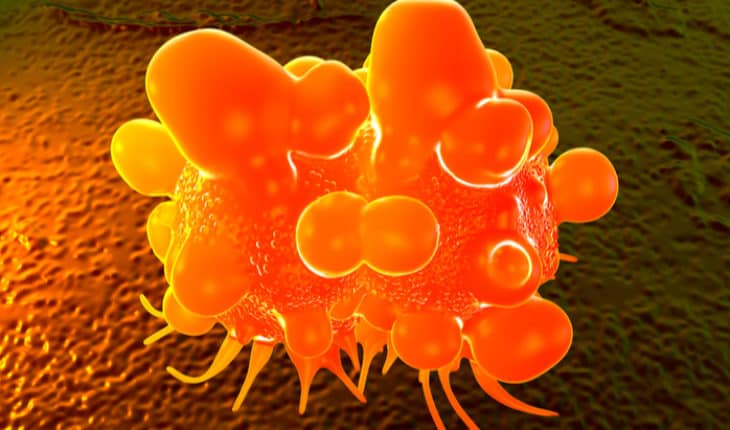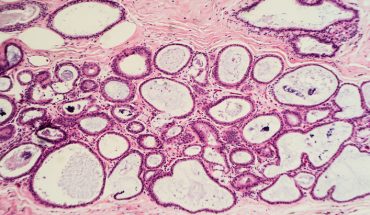Increasing sensitivity of bowel cancer test could help earlier diagnosis for young people – research finds.
Increasing the sensitivity of a bowel cancer test used by GPs could help identify more cases of bowel cancer in young people with symptoms of the disease and ultimately save lives, new research co-authored by Bowel Cancer UK has found.
The study, published in Colorectal Disease today (Friday, 9 July 2021), is the first of its kind to look into the accuracy of the faecal immunochemical test (FIT) in helping to diagnose bowel cancer in younger patients at high risk of significant bowel diseases, including bowel cancer, advanced polyps and inflammatory bowel disease.
FIT is used in bowel cancer screening programmes across the UK, to identify older adults without symptoms who need to be investigated for bowel cancer. However, FIT is being used more frequently by GPs to help understand which people with bowel symptoms may also need urgent investigations.
Mr Nigel D’Souza and colleagues studied the accuracy of FIT in helping to diagnose bowel cancer and other serious bowel diseases in patients under 50 who had bowel symptoms. Their results suggest that the presence of blood in poo, detected by FIT, can tell clinicians which patients need to be investigated urgently. In particular, younger people with symptoms who have more than 150μg of blood per gram of poo, as detected by FIT, are particularly likely to need urgent investigation.
Mr Nigel D’Souza said: “Whilst the number of bowel cancers diagnosed in younger people remains low, the number are increasing year on year. FIT alone is unlikely to solve the problem of diagnosing younger patients earlier, however, it could be used alongside other measures, such as anaemia, to help GPs to identify those who need urgent referral for significant bowel disease.”
Mr Muti Abulafi, consultant surgeon at Croydon University Hospital and chief investigator of the NICE FIT study which produced this research with RM Partners, the West London Cancer Alliance, said: This research goes a long way to highlighting a problem that is often ignored by both young patients and their treating doctors on the assumption that bowel symptoms in the young are due to functional causes and not due to cancer or serious bowel disease. Whilst this is true to a large extent, the difficult problem is how to identify those small but increasing proportion of young patients who are at highest risk of serious bowel disease i.e. finding the needle in the haystack. This research provides such a tool using a simple at home stool test called FIT.”
Dr Lisa Wilde, Director of Research and External Affairs at Bowel Cancer UK, said: “We’re delighted to be part of Mr D’Souza’s research helping to improve the challenging situation that the 2,500 younger patients diagnosed with bowel cancer in the UK can face.
“We know that time and time again, younger people struggle to have their bowel cancer symptoms taken seriously, and are often diagnosed after repeated visits to their GP.
“Nobody should be told they don’t have bowel cancer based only on their age, and referrals for further investigation should be made as soon as possible. Bowel cancer is the second biggest cancer killer in the UK, but it’s treatable and curable, especially when diagnosed early.”
Find out more about Bowel Cancer UK’s Never Too Young campaign here.
Never Too Young survey results
A survey by the charity of 1,073 people in the UK who had been diagnosed with bowel cancer under the age of 50, and a further 222 who responded on behalf of someone who had received a diagnosis below this age, found:
- half (50%) were not aware they could develop the disease at a younger age prior to diagnosis
- around a third (30%) had delayed visiting their GP for at least three months, even though they had symptoms of bowel cancer
- more than four in ten (43%) were forced to visit their doctor three times or more, with one in six (16%) returning on at least five occasions before being referred for bowel cancer tests
- four in ten (40%) were not satisfied with the amount of support and information about fertility and family planning given by healthcare professionals.
The report also revealed a third of those surveyed (32%) weren’t aware of any symptoms of bowel cancer before their diagnosis, with more than four in ten (42%) knowing only a few. This lack of awareness of bowel cancer symptoms was found to be a key cause of delay in people visiting their doctor.
The survey was carried out between Thursday 28 November 2019 and Sunday 5 January 2020.
Read the full Never Too Young report here.
About Bowel Cancer UK
Bowel Cancer UK is the UK’s leading bowel cancer charity. We’re determined to save lives and improve the quality of life of everyone affected by bowel cancer. We support and fund targeted research, provide expert information and support to patients and their families, educate the public and professionals about the disease and campaign for early diagnosis and access to best treatment and care. For more information visit bowelcanceruk.org.uk
About bowel cancer
Bowel cancer is the fourth most common cancer in the UK and the second biggest cancer killer, affecting both men and women. Every 15 minutes in the UK someone is diagnosed with bowel cancer. That’s over 42,000 people every year.
Bowel cancer is treatable and curable especially if diagnosed early. Nearly everyone survives bowel cancer if diagnosed at the earliest stage. However this drops significantly as the disease develops. Early diagnosis really does save lives.
The symptoms of bowel cancer can include:
- Bleeding from your bottom and/or blood in your poo
- A persistent and unexplained change in bowel habit
- Unexplained weight loss
- Extreme tiredness for no obvious reason
- A pain or lump in your tummy
Most people with these symptoms don’t have bowel cancer. Other health problems can cause similar symptoms. If you have one or more of these, or if things just don’t feel right, see your GP.
- New lipid-based pathway discovered as key to memory formation - 25th June 2025
- Crucial link could explain how Alzheimer’s takes hold - 25th June 2025
- Understanding Your Mind Can Improve Daily Life - 25th June 2025







